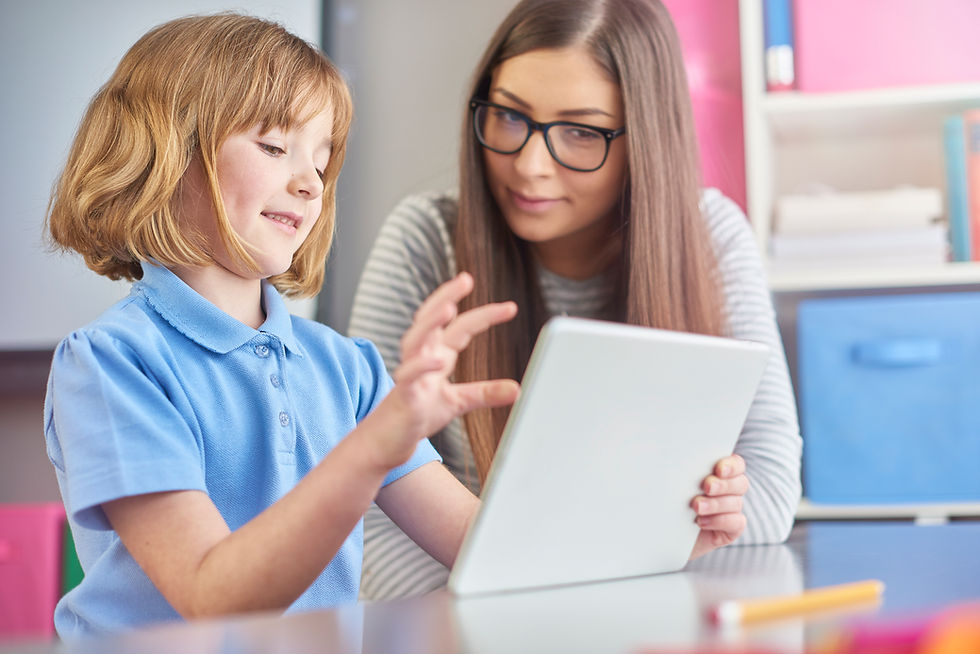Blog - Keeping your child safe online
- spbirkett
- Jan 9, 2023
- 2 min read

The Internet has well and truly become a part of our daily lives, and there is no getting away from the increasing number of hours that many children and young people are spending online each day.
Used correctly and safely, the Internet is an invaluable tool both at home and in the classroom when it comes to your child's education, plus as a tool to keep in touch with friends, relatives, staying up to date with the latest news, listening to music....the list goes on. But unfortunately, it is also relatively easy for our young people to stumble across unsuitable material, which you would rather they did not see, or to be targeted by other individuals.
With children and young people often possessing better tech skills than their parents, it is more important than ever for parents to ensure that appropriate controls are in place, and to know where to ask for help to keep their children safe online if they need it.
During the Coronavirus pandemic, County Lines drug gangs (highly organised criminal networks that use sophisticated, frequently evolving techniques to groom young people and evade capture by the police) evolved the way they were targeting young people to move drugs and money around the country for them, with criminal gangs increasingly targeting young and vulnerable individuals via social media.
There are a number of tools that are available to parents to enable you to manage and block potentially inappropriate information across a number of platforms, including:
Home broadband and Wifi – your internet provider will have a filter which allows you to manage the content, with some offering different settings for each user
Games consoles – many consoles have internet access often with a chat function allowing them to interact with other players. Parental controls allow you to turn off the chat function and restrict games by age, and some offer different setting for each player.
Mobiles, tablets and computers – you can turn off in-app purchases, location settings and make use of wellbeing settings to reduce screen time.
Apps and online services – chat filters, privacy and content filters plus in-app purchases can e turned off.
Search engines – content filters can be used to ensure that only age-appropriate material can be viewed.
Whilst parental controls are useful, they do have their limits and are just one of the ways to help keep your child safe online. Setting good, strong passwords is a good starting point, remembering to amend parental controls as your child gets older, but also encouraging your child to tell you if they have seen something online which made them feel uncomfortable or concerned is key.
Starting the conversation about online safety with your child may not be easy, but Childnet has some fantastic conversation starter tips, resources to download and links for starting those 'difficult to have' conversations.
Thinkuknow is another really good resource, which includes information on who to speak to if you have concerns over your child's safety, and how to report an incident to CEOP (Education from the National Crime Agency).
If after reading the above you would like to find out more about Fountain Head House School, please visit www.fhhschool.co.uk, email Thereza.DeLucca@fhhschools.com or call 01752 853891.
References:
https://www.gov.uk/government/publications/coronavirus-covid-19-keeping-children-safe-online/coronavirus-covid-19-support-for-parents-and-carers-to-keep-children-safe-online
https://www.childnet.com/
https://www.thinkuknow.co.uk/parents/
https://www.nspcc.org.uk/keeping-children-safe/online-safety/



